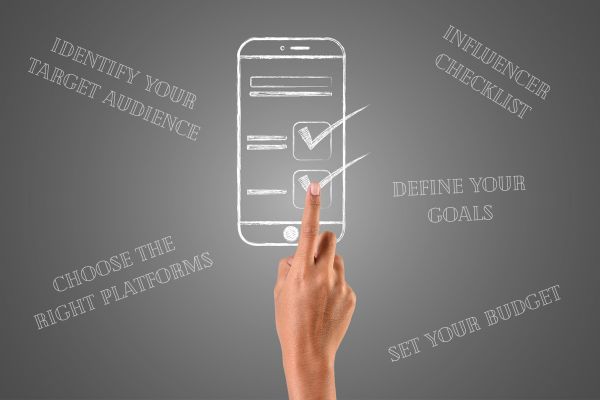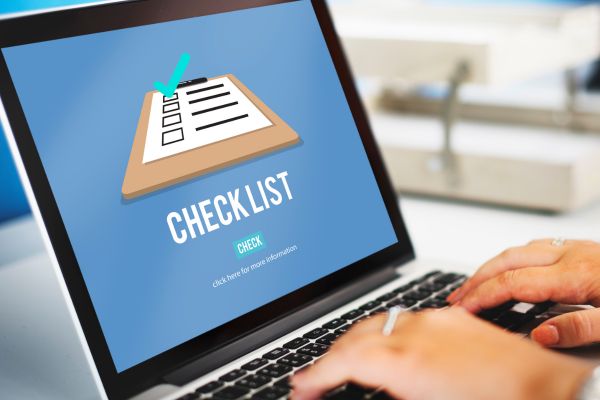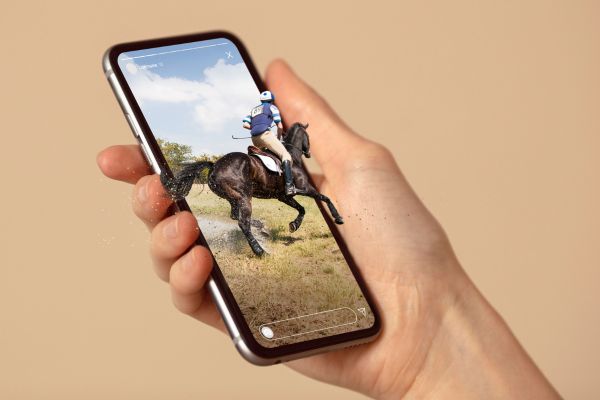Influencer marketing has become a powerful tool for brands aiming to connect with their audience in a more authentic and impactful way. However, without a clear plan in place, even the most promising campaigns can fall short. That’s where an influencer checklist becomes essential. Having a structured approach helps you stay organized, avoid common pitfalls, and ensure every step, from discovery to collaboration, is handled effectively.
This blog is designed to serve as your go-to influencer checklist, covering everything you need to successfully find, vet, and work with influencers who align with your brand. Whether you’re launching your first campaign or looking to refine your process, this guide will help you streamline your efforts, save time, and improve your results.
Let’s break down the must-follow steps that can take your influencer marketing from scattered to strategic:
- Why Do You Need an Influencer Checklist?
- 1. Pre-Campaign Checklist: Setting the Foundation
- 2. Influencer Discovery Checklist: Finding the Right Influencers
- 3. Influencer Vetting Checklist: Avoiding Scams & Mismatches
- 4. Collaboration Checklist: Working with Influencers
- 5. Post-Campaign Checklist: Measuring Success
- How Companies Can Benefit from Using the Influencer Marketing Checklist

Why Do You Need an Influencer Checklist?
While influencer marketing offers huge potential, it also comes with its own set of challenges. Brands often face issues like fake followers, poor audience alignment, unclear expectations, or disappointing ROI. Without a clear process in place, it’s easy to partner with the wrong influencer or overlook important campaign details, leading to wasted time and budget.
That’s why having a structured approach is so important. An influencer checklist is essential for ensuring your campaigns are effective and efficient. It acts as a step-by-step guide to help you stay organized, evaluate influencer credibility, and set clear goals from the start.
A well-prepared checklist can help you:
- Save time by streamlining the influencer discovery and vetting process
- Avoid common pitfalls like low engagement or brand misalignment
- Set clear expectations and deliverables for both sides
- Improve overall campaign performance and return on investment
In short, a checklist helps turn influencer marketing into a repeatable, strategic process, rather than a guessing game.
Further reading: How to Start Influencer Marketing
Pre-Campaign Checklist: Setting the Foundation
Before reaching out to influencers or launching any content, it’s important to lay a solid foundation. This first phase ensures your campaign has a clear direction and measurable goals. Here are the key steps to include in your pre-campaign influencer checklist:
A. Define Your Goals
Start by identifying what you want to achieve. Are you aiming to increase brand awareness, drive traffic to your website, generate leads, or boost product sales? Your objectives will shape every part of your campaign – from influencer selection to performance metrics.
B. Identify Your Target Audience
Who are you trying to reach? Define your ideal customer based on demographics (age, location, gender) and psychographics (interests, behaviors, pain points). Understanding your audience will help you partner with influencers who already engage with similar communities.
C. Set Your Budget
Establish a clear budget that includes influencer compensation, content production, platform-specific ad spend (if applicable), and any tools or agencies you may use. This helps you manage expectations and avoid overspending.
D. Choose the Right Platforms
Not every platform works for every brand. Instagram and TikTok are ideal for visual, short-form content, while YouTube suits tutorials or long-form storytelling. Choose platforms that align with both your goals and your audience’s online behavior.

Influencer Discovery Checklist: Finding the Right Influencers
Once your campaign goals and audience are defined, the next step is finding influencers who align with your brand. A strategic approach ensures you partner with creators who can genuinely amplify your message. Here’s your step-by-step influencer discovery checklist:
A. Use Influencer Discovery Tools
Start by using platforms like Hypefy, BuzzSumo, Upfluence, or Heepsy to filter influencers by niche, location, engagement rate, and audience size. These tools can save you hours of manual research and provide valuable data to support your decisions.
B. Check Follower Demographics
It’s not just about who the influencer is, it’s about who follows them. Make sure their audience matches your target market in terms of age, location, gender, interests, and purchasing behavior. Most influencer tools offer access to this kind of data.
C. Review Engagement Rates
High follower counts don’t always mean high impact. Look at the average number of likes, comments, and shares to evaluate how engaged their audience really is. A smaller influencer with strong engagement can often outperform a larger one with passive followers.
D. Analyze Content Quality
Review their recent posts to see if their tone, visual style, and content type align with your brand’s voice and aesthetic. Is their content professional, on-brand, and consistent? A strong content style is key for a seamless and effective collaboration.
By following this influencer discovery checklist, you’ll identify creators who not only have reach but also relevance and authenticity, key drivers of campaign success.

Influencer Vetting Checklist: Avoiding Scams & Mismatches
Once you’ve identified potential influencers, the next step is to vet them carefully. This process helps you avoid common pitfalls like partnering with someone who has fake followers, low credibility, or doesn’t align with your brand values. Here’s your influencer vetting checklist to guide the evaluation:
A. Check for Fake Followers
A high follower count can be misleading if the majority are bots or inactive accounts. Use tools like HypeAuditor, Social Blade, or Modash to analyze audience quality, sudden spikes in followers, and suspicious engagement patterns. Aim to work with influencers who’ve built genuine, organic communities.
B. Review Past Collaborations
Look through their previous brand partnerships. Are the posts professional and engaging? Do the products or messages align with your brand’s values? Repeated low-quality or mismatched collaborations may be a red flag.
C. Verify Credibility
Is the influencer knowledgeable and authentic in their niche? Whether they’re a fitness coach, skincare expert, or mental health advocate, they should demonstrate subject matter expertise and a consistent voice. Look for transparency, fact-based information, and a history of meaningful content.
D. Assess Audience Sentiment
Go beyond likes, read the comments. Are followers asking questions, offering praise, or sharing their own experiences? Positive and thoughtful engagement often signals that the influencer has built trust with their audience, which is essential for impactful campaigns.

Collaboration Checklist: Working with Influencers
Once you’ve selected the right influencer, it’s time to shift focus to collaboration. A well-organized partnership sets the tone for quality content, timely delivery, and a mutually beneficial relationship. Use this collaboration checklist to make sure everything runs smoothly from start to finish:
A. Craft a Clear Brief
Start by creating a detailed campaign brief that outlines everything the influencer needs to know. Include brand guidelines, preferred tone of voice, target audience, campaign goals, key messages, hashtags, and any dos and don’ts. The clearer the brief, the more aligned the final content will be.
B. Set Expectations
Discuss all deliverables upfront, such as the number of posts, format (e.g., Reels, Stories, static images), timeline, and content approval process. Be transparent about deadlines and compensation, whether it’s monetary payment, product exchange, or affiliate commissions.
C. Sign a Contract
Always use a formal agreement that outlines rights, responsibilities, payment terms, and usage rights for content. This protects both you and the influencer and sets legal clarity around the partnership.
D. Monitor Content Creation
Stay involved throughout the process by offering support and answering questions, but avoid micromanaging. Give influencers creative freedom to maintain authenticity, after all, their voice is what resonates with their audience.

Post-Campaign Checklist: Measuring Success
The work doesn’t end once the content is live. Evaluating the outcome of your influencer campaign is just as important as planning it. A thorough post-campaign review helps you understand what worked, what didn’t, and how to improve future collaborations. Here’s your post-campaign checklist for measuring success:
A. Track Key Metrics
Start by analyzing the numbers. Focus on metrics like engagement rate, reach, clicks, conversions, and overall ROI. Use tracking links, promo codes, and platform analytics to get a clear picture of performance against your original goals.
Tools to Use: Google Analytics, Instagram Insights, TikTok Analytics, or affiliate tracking platforms.
B. Gather Feedback
Don’t forget to debrief with your team and the influencer. Ask for honest feedback on what went well and what could be improved. This two-way communication strengthens relationships and helps refine your process for next time.
C. Analyze Audience Sentiment
Look at how the audience responded to the content. Were the comments positive? Did the message spark conversation, interest, or action? Qualitative feedback can be just as valuable as data when measuring impact.
D. Document Lessons Learned
Capture all insights, what type of content performed best, which influencer drove the most value, or where timelines slipped. Keep a record of successes and challenges to guide more efficient and effective campaigns in the future.

How Companies Can Benefit from Using the Influencer Marketing Checklist
Influencer marketing can deliver impressive results, but only when executed strategically. A well-structured influencer marketing checklist helps businesses maximize ROI, minimize risks, and build stronger partnerships. Here’s how companies benefit from using this essential tool:
Saves Time and Resources
With a clear roadmap in place, your team can avoid guesswork and repetitive back-and-forth. Each step is outlined, helping streamline processes from planning and influencer discovery to post-campaign analysis.
Reduces Risk of Errors
A checklist ensures that no critical steps are missed, like verifying audience demographics, setting clear deliverables, or signing a formal contract. This reduces the risk of miscommunication, compliance issues, or mismatched partnerships.
Improves Campaign ROI
By carefully vetting influencers and tracking performance, companies can optimize their spend and focus on high-performing strategies. This leads to more effective collaborations and a better return on investment.
Enhances Collaboration and Consistency
When both internal teams and influencers have a shared understanding of goals, timelines, and expectations, it leads to smoother partnerships and more cohesive campaign execution.
In short, using an influencer checklist brings structure, clarity, and confidence to your marketing efforts, helping your brand stand out in a competitive digital landscape.
Conclusion
Influencer marketing can be a powerful growth tool, but only when approached with structure and strategy. As this guide has shown, a detailed influencer checklist helps ensure every phase of your campaign is intentional, efficient, and aligned with your goals.
By implementing this comprehensive influencer checklist, you’ll not only save time and resources but also build stronger, more effective influencer relationships that drive real business results.
Ready to take your influencer marketing to the next level? Start applying these steps today – and watch your campaigns thrive!



